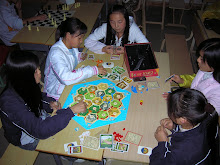
If you were raised in the western world then some of this may seem a little odd to you. Please remember that these are only my observations and thoughts; I do not mean to upset anyone.
For weeks now I have been trying to prepare a fair account of the compulsory military training that happens throughout China before students begin their college classes. Speaking to students, reading articles, and watching the training has given me a lot to think about. I remain uncertain about the true feelings and motives of the people who have orchestrated this annual welcome ceremony: the people in the upper echelons of the Chinese Communist Party.
I am certain about widespread student contempt for the activities based on interviews with them. When the occasional student says they enjoy the training it may be genuine and it may be meant to impress me. The student disapproval of this military drill instruction is largely due to the long hours and relentless standing and drilling, however, not because they have a fundamental disagreement in philosophy.
I have interviewed about ten students regarding the reason for military training and the answer is always a spirited, “To keep healthy and exercise.” Strangely, the military drilling includes virtually no component of exercise whatsoever. Instead of doing something that will help strengthen muscles or heart the students are constantly marching. Perhaps the “exercise,” they mean is related to the leg workout from standing for long periods of time. I have yet to see a group of students going for a long jog to improve their cardiovascular system.
So what’s the deal? I see several possibilities for the students to give this answer. The first is that they were told this throughout the training. Common in China is the pat answer for common questions.
Me: “How can we stop littering?”
Student: “Stop using disposable chopsticks.” [this is said as they are using disposable chopsticks]
Me: “Why do the Japanese have a history of attacking China?”
Student: “They are a small island country and they need to take resources from other countries.” [I have heard this more than ten times now]
Essentially Chinese students have been trained to respond to questions without having the understanding and synthesis required to make a sound argument about the issue. This is rooted in how characters are learned (memorization), and how learning is viewed (facts to be learned). Another encouraging factor is the Confucian tradition of following the group in the interest of social harmony.
Perhaps the students are embarrassed about what the military training is truly about: it’s more political than they would like to admit.
Personally I think the training is geared more towards the twofold aspect of discipline. A combination of self-governance and respect for authority (the party) is sought as students march to the beat of one drum. Self-discipline comes from enduring the training and making it, tearfully, to the end. The government sends People’s Liberation Army (PLA) officers to preside over groups of students as their trainers for the two to three weeks of drill. The time is so intense and difficult that many girls have fallen in love with their drill instructors by the end of the training, giving their phone numbers and their QQ instant message nicknames to the officers. The government recently re-wrote the guidelines to help prevent this kind of behavior from happening.
I think there is a real benefit to this training. Nobody gains much knowledge from the mind-numbing routine, but the students are prepared for a time when they would have to organize to defend their country. Nationalism runs thick in China and people are willing to make small sacrifices for this ideal. Over a decade ago this military training included trips to the countryside where students would fire guns. Though this practice is no longer in place, watching the students march in their camouflage uniforms offers little room for doubt: this is the beginning of training soldiers.








No comments:
Post a Comment